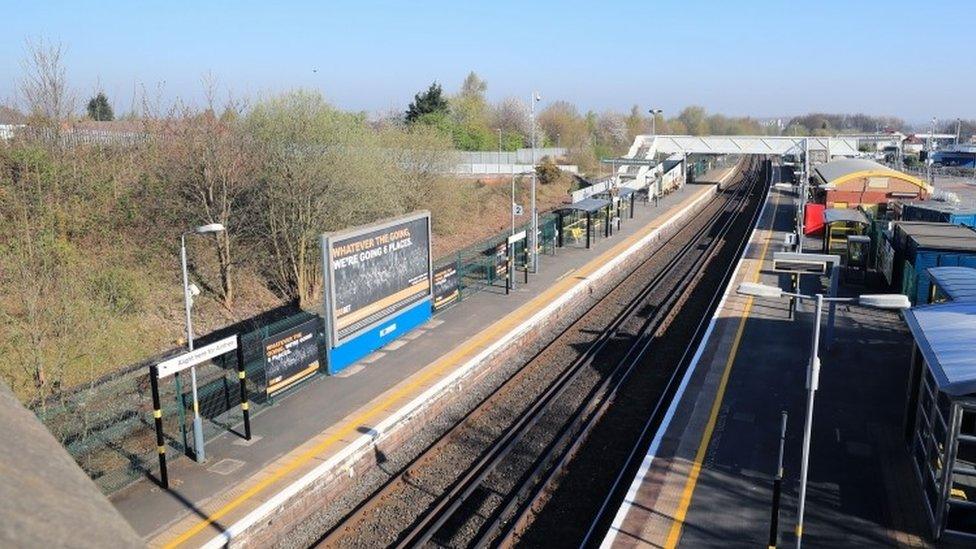Southern rail: Seven facts about the dispute
- Published
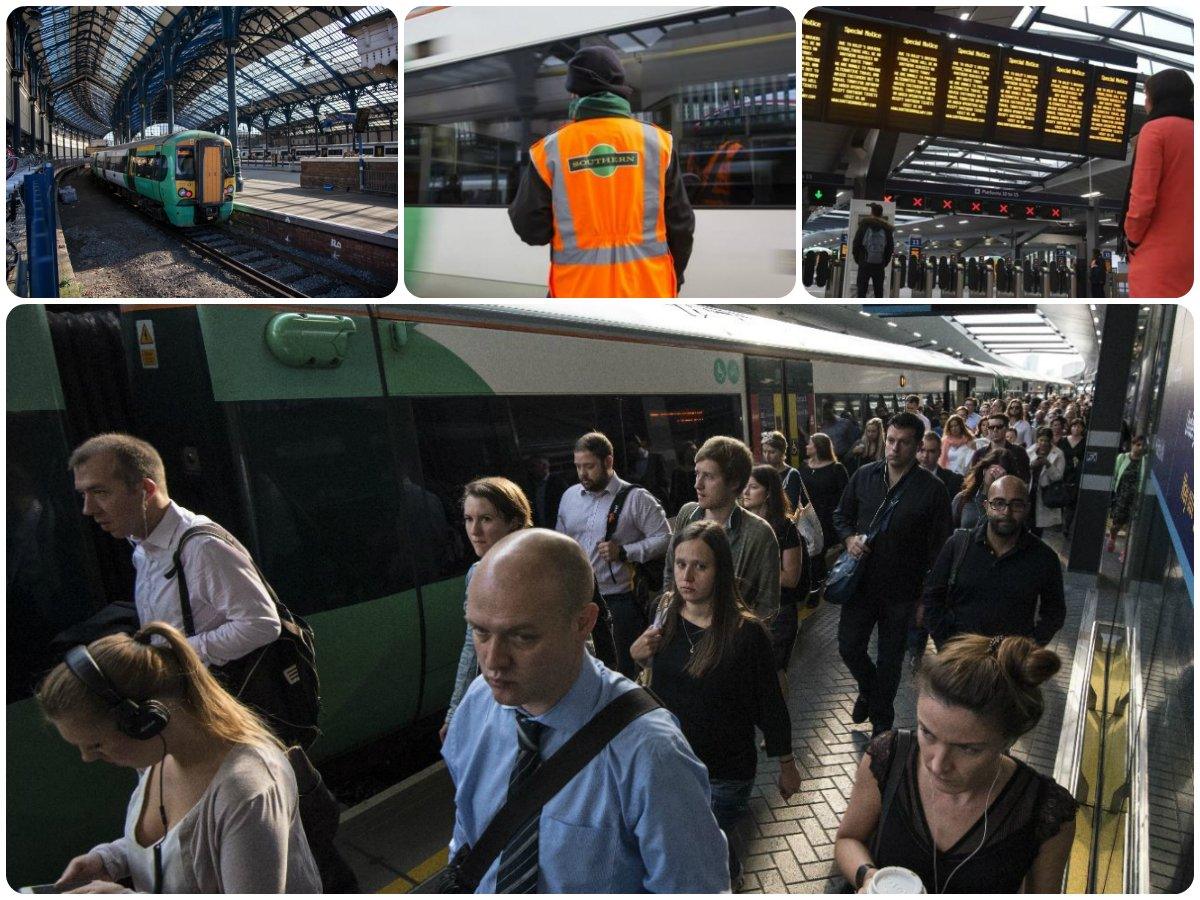
From the financial hit on drivers to the effect on house prices - here are seven facts you may not have known about the Southern rail strikes, which began a year ago.

1. It is the worst industrial action to hit the rail industry for 23 years
Throughout 2016, 58,983 Southern services were either fully or partly cancelled. Averaged out across the year, that was more than 160 every day.
It was the worst disruption since the rail industry was privatised in 1994, when signal workers went on strike multiple times over changes to their pay.
A series of 24 and 48-hour strikes virtually halted train services on 17 occasions over the summer.
For more stories from the BBC England data unit follow our Pinterest board, external
Southern put its performance down to staffing problems, including rosters for train crew and drivers, shortages of conductors and staff.

2. One woman was forced to undergo a six-hour round trip for her son's medical treatment

Passengers on the busiest services found their journey times doubled or even tripled on the days their trains did not run - and even that was only if they had access to a car. Those who drove sat in hours of traffic while others told of £100 taxi fares or having to work from home.
Heather Boxer and her three-year-old son Charlie should be able to reach the hospital where is treated for cystic fibrosis in about 90 minutes by train.
Instead, because of the risk of strikes they drove from East Grinstead to the Royal Brompton Hospital twice a month.
The mother of two said: "Three hours each way, then the nightmare of trying to park in Chelsea.
"When Charlie was first diagnosed we were living in Redhill and we always used to use the train but then we moved to East Grinstead and the strikes had started, so we just decided we couldn't risk it."

3. The taxpayer has footed the bill
The Government set aside £15m in compensation for passengers. And it is picking up the tab for a £38m fall in fare revenue as a result of services not running.
This is because the Southern franchise, operated by Govia Thameslink Railway (GTR), involves the government paying a management fee for the company to run it, while the taxpayer bears the financial risk for revenue lost through compensation.
More than 84,000 passengers are entitled to claim compensation.
So far, 54,500 claims have been approved and £12.6m has been paid out.
Southern said people would get one twelfth of the value, external of their annual season ticket for 2016.
Monthly season ticket holders are entitled to a month's refund and weekly ticket holders are eligible for four weeks' worth. The scheme is open until 30 April 2017.

4. Drivers on strike would have been docked an estimated £235 a day

John Chew left his job rather than become an on-board supervisor
There was a cost for drivers and conductors who took strike action. Those who walked out every time would have sacrificed thousands of pounds of pay.
A fully qualified Southern driver is paid a basic salary of £49,001 for a 35-hour, four day working week as well as £4,475 a year worth of contracted overtime.
Conductors based in London are paid £34,863 a year, including Sunday working for a 35-hour, four-day week. Overtime can bring the total up to £37,000.
Assuming a driver went on strike for all six days, they would have been docked an estimated £235.58 a day.
A conductor would have lost an estimated £167.61 a day, excluding overtime.
Conductor John Chew refused to sign his contract to switch from becoming a conductor to an on-board supervisor. He left his job after 17 years and is about to train to drive 7.5-tonne commercial vehicles.
"I saw some of my old colleagues from Southern a couple of weeks ago. In general the impression I get is that they are profoundly unhappy with what's happening.
"I was lucky as I had some savings but I know a number of them who have families, children, and mortgages, couldn't have taken the step I took."

5. Southern's Mainline and Coast services have the highest rate of cancellations in Britain
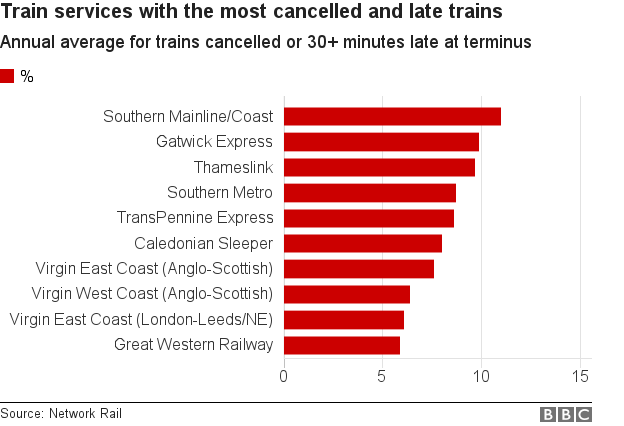
Over the past year, an average of 11% of all trains were either cancelled or significantly late, meaning they got to their final destination over half an hour late. Across the rest of the industry, it was about 3%.
Other GTR-run services, including the Gatwick Express, Thameslink and Southern Metro, were also among the most cancelled and late.
In March 2017, the latest figures available, eight out of 10 GTR services (82.3%) arrived at their terminating station on time, the lowest in the country. The average for the rail industry was 91%.

6. The strikes were more disruptive than the junior doctors' strikes
Professor Alfred Crossman, of the University of Sussex School of Business, Management and Economics, said the signal workers' strike in 1994 was bigger because it was nationwide, however the Southern strikes have gone on longer.
And their ability to impact instantly upon thousands of people meant they were more disruptive even than the junior doctors' strikes were during 2016.
Professor Crossman said: "The impact was immediate [with Southern]. In the NHS, operations can be rescheduled. It's inconvenient, but the impact is less immediate, other than A&E which is usually covered by consultants when junior doctors are on strike."
Despite the noticeable disruption across the Southern network, transport workers made up only the third largest group to take industrial action, after people in healthcare and education.

7. House prices do not appear to have been affected
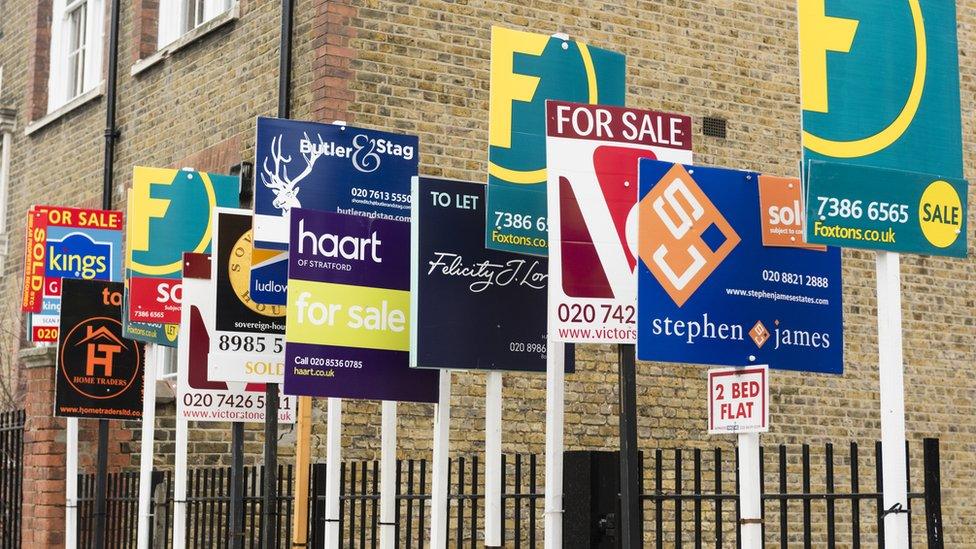
House prices continued to rise even in areas affected by the strike
Experts say they have not found a direct link between "poorer" performing house prices and the strikes, although they "will not be helping".
House prices continued to rise, but their growth has been slowing generally. The change has been put down to wages having failed to keep up with the rise in house prices, which seems to have curbed the demand for homes.
Doug Shepherd, director of home.co.uk said: "The fact is that both the London and south-east property markets have slowed markedly and the supply of homes for sale is still increasing."
And buying agent Henry Pryor said: "I have warned buyers in the affected areas that this is going on, but I have not had anyone not proceed with a purchase on the basis of the strikes and neither have I heard of that from anyone else."

What happens now?
Southern said the impact on passengers was "now minimal".
"We're deeply sorry for the disruption passengers have faced, and the effect it has had on the local economy in the past year on Southern, due in the main to industrial action in one form or another," a spokesman said. It has been meeting with the RMT (the conductors' union) and in discussions with Aslef to "better understand" why its offer to drivers was rejected.
A spokesman for the RMT said: "We take no pleasure in the fact that this dispute has lasted a year. We believe it could have been resolved right from the start. It's down to the intransigence of the company supported by the government that this has continued and the fact that it comes under a government management contract."
Drivers' union Aslef said: "We are looking for a resolution which works for staff, passengers and the company."
Rail Minister Paul Maynard said: "Performance has been consistently better since the new year, and our focus is on making sure passengers keep seeing the benefits of a reliable and efficient service."
Reporting team: BBC England data unit: Daniel Wainwright; BBC South East: Tanya Gupta and Kathryn Langley
- Published6 December 2016

- Published13 March 2017
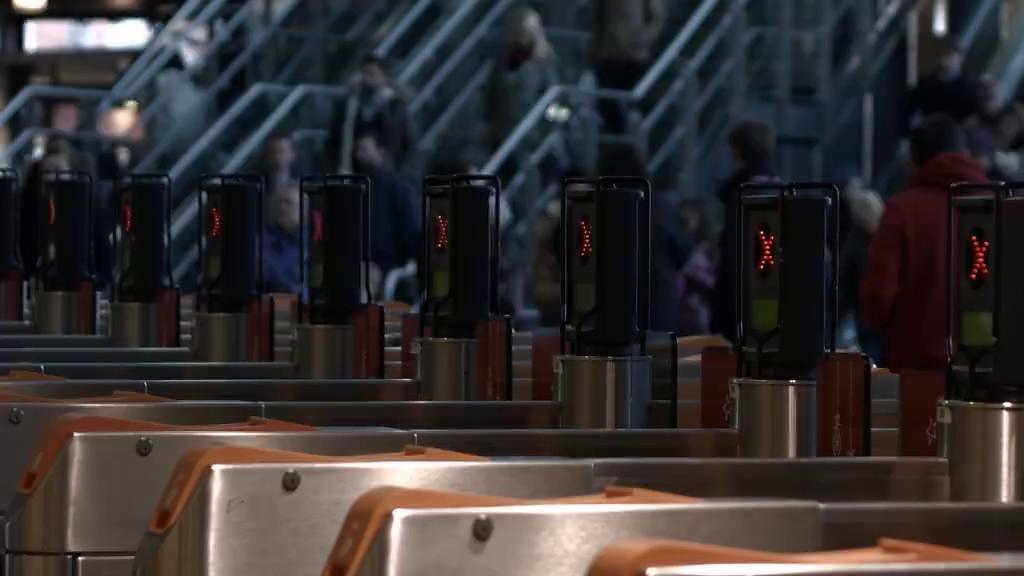
- Published4 November 2016
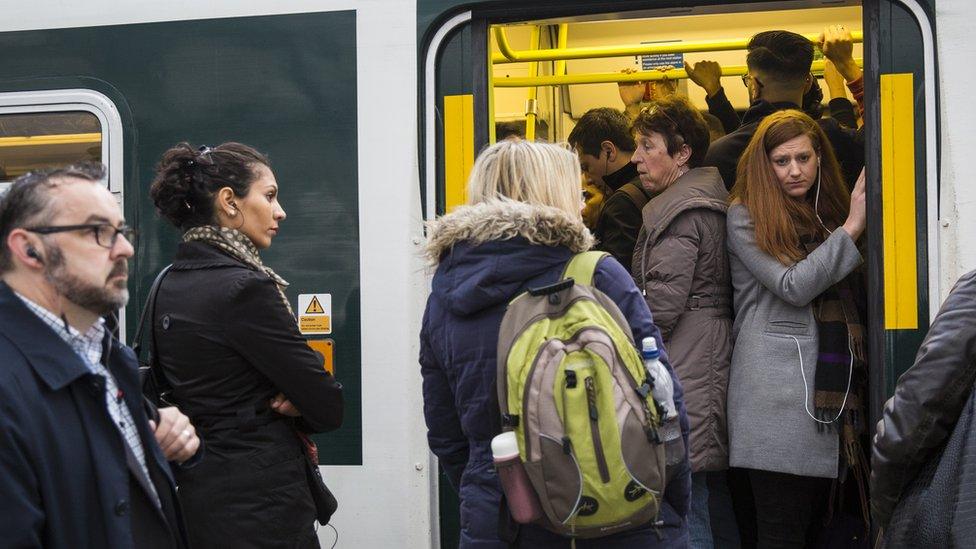
- Published8 April 2017
